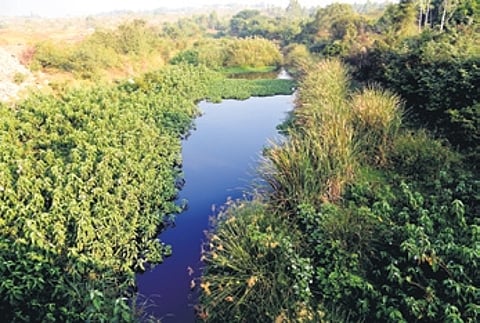

BENGALURU: BWSSB Chairman Ram Prasat Manohar has said the Arkavathi river, the primary source of drinking water for Bengaluru from 1936 to 2000 via the Thippagondanahalli reservoir, will be taken up for rejuvenation through an innovative public-private partnership model.
He said that a high-level committee of experts will be constituted to spearhead the river’s rejuvenation. Stretching 53 kilometers from Nandi Hills to TG Halli, and covering a basin area of 1,400 sq. km, the Arkavathi holds immense potential to be reborn as a sustainable lifeline.
Manohar highlighted that water from Ettinahole was intended to mix with Arkavathi waters at TG Halli. However, rapid industrial growth, wastewater discharge, and environmental degradation rendered the reservoir’s water unfit for consumption.
“The Deputy Chief Minister has envisioned a long-term strategy to revive the river and secure a stable water future for Bengaluru. Several government agencies, NGOs, and civic bodies are coming together to shape a comprehensive action plan. IDECK has already begun an integrated study covering areas like Hesaraghatta, Madanayakanahalli, and parts of BBMP, laying the groundwork for rejuvenation,” he said.
The BWSSB chief emphasized that although only 15% of the Arkavathi’s river basin falls under BWSSB’s jurisdiction, collaboration will be key.
“A multi-disciplinary expert committee will soon be formed, incorporating insights from voluntary organizations, academic institutions, and civic stakeholders, to drive the mission forward,” he said.
The meeting was attended by top officials from BBMP, Bangalore Development Authority, Karnataka Industrial Area Development Board, Karnataka State Pollution Control Board and other civic agencies and representatives from Biome Trust, and scientists from the Indian Institute of Science.